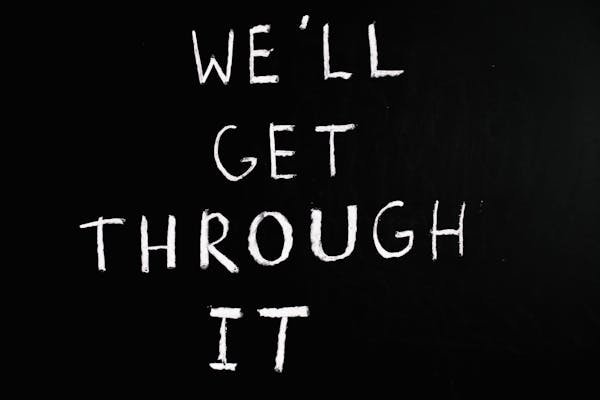What is Love Bombing?
While it might sound like a positive thing, “love bombing” can actually be an abuse tactic. “Love bombing” is where one person showers the other with affection, compliments, gifts, and attention to gain their trust, create a high level of dependency, and mask other abusive behaviours.
Following the “love bombing” (praise, affection, gifts, compliments, and attention), a perpetrator will typically withdraw the positive reinforcement - examples of this might include; threatening to take back gifts, saying that the receiving partner hasn’t been grateful enough, or withdrawing affection.
This extreme change in personality and behaviour might leave the victim feeling confused and questioning themselves. Over time this might lower their confidence, sense of safety, and trust in themselves and others. They might work hard to “earn” back the favour of the abuser. In this way, love bombing can be a part of a cycle of abuse, and ultimately works to control or manipulate another.
In 2023, the Crown Prosecution Service released new guidance on how to charge abusive partners for coercive and controlling behaviour which recognised love bombing as a tactic of abuse and coercive control. However, as well as romantic relationships, it might also be experienced in other platonic personal relationships.
Love bombing may seem romantic, but it’s not romance, it's manipulation.

Signs of love bombing may include:
- giving excessive, expensive, or unwanted gifts
- making you feel guilty about not reciprocating with gifts or being appreciative enough
- threatening to take back the gifts
- excessive flattery or praise
- making promises about your future together early on
- wanting to know everything about you right away
- intense communication that feels like it progresses too quickly
- putting you on a pedestal which then becomes pressurising to maintain
- intense declarations of love which might feel too much, too fast
- pressuring you to commit
- immense jealousy when you’re with anyone else.
- resisting your boundaries
- sudden withdrawal
- comments such as “no one else would treat you the way I do”
Please note that one or two of these signs alone do not necessarily indicate “love bombing” or abuse. But if you find yourself relating to a number of the following statements, it might be important to reach out for help.
Tara’s experience of love bombing
Tara realised she was a victim of love bombing after an escalation of subtle abuse from her partner at uni. “He would buy me expensive things like designer bags, expensive jewellery, or he would give me things of sentimental value to him, like his favourite watch. At first, I thought it was really sweet, like him. He was really attentive. He’d always want to meet me after class, he introduced me to all his family over the phone really early on, and he wanted to make it exclusive.
But soon we started having big fights. And every time we fought he would do something upsetting on social media - like share a picture of him and another girl, or ask for his watch back. I know these sound like red flags now, but at the time I just thought they were arguments. He’d say things like “No one else would treat you like this. I treat you like a princess, and this is how you repay me.” My friends weren’t sure about him and he told me I shouldn’t talk to them about him because they were gossips. It made me feel like I was wrong to be thinking badly about him, and that maybe I was being ungrateful.
But eventually the arguments became bigger and the threats became worse - he physically hurt me and made threats to me and my family. Eventually, I went to the police and that was when I first heard the term ‘love bombing’. Before then I’d thought those early things had been really nice - the gifts and affection. I thought that was the honeymoon phase, but now I see that he was just trying to get me to like him so much that I couldn’t bear losing him.”
How to get help
Like all forms of emotional abuse, love bombing can affect people in several ways. It can impact your mental health, your approach towards future relationships, and your existing relationships with those around you. For some people, love bombing can create a sense of confusion and self-blame. It can also create a sense of fear for the perpetrator.
Getting support may be able to help you process the effects and outcomes of being love-bombed.
Reach out for support - If you’re someone who has experienced love bombing or any other form of abuse, you’re certainly not alone. Talking to someone from student services might be a useful way to get some support. If that doesn’t feel right for you, there’s loads of other support services across the UK that can help. If you’re not in immediate danger but have concerns about your safety, there are domestic abuse helplines that you can call, many of which offer a 24-hour service. By calling a helpline, you’ll be able to talk about your experiences and speak to someone about your options. They will be able to refer you to specialist support services that can help you reach safety and access local support:
- Across the UK: Women’s Aid online chat: Chat directly with a Women’s Aid support worker.
- England: National Domestic Abuse Helpline A confidential, 24-hour service run by Refuge. Call on 0808 2000 247 or access the service online.
- Scotland: Scotland’s Domestic Abuse and Forced Marriage Helpline 24-hour helpline and has online resources are available in eight languages.
- Wales: Welsh Women’s Aid Runs the Live Fear Free Helpline which offers a 24-hour phone service, live online chat and text service.
Counselling - Woman's Trust is a specialist mental health charity providing free counselling and therapy for women who have experienced domestic abuse. If you are in immediate danger, call the police on 999.


